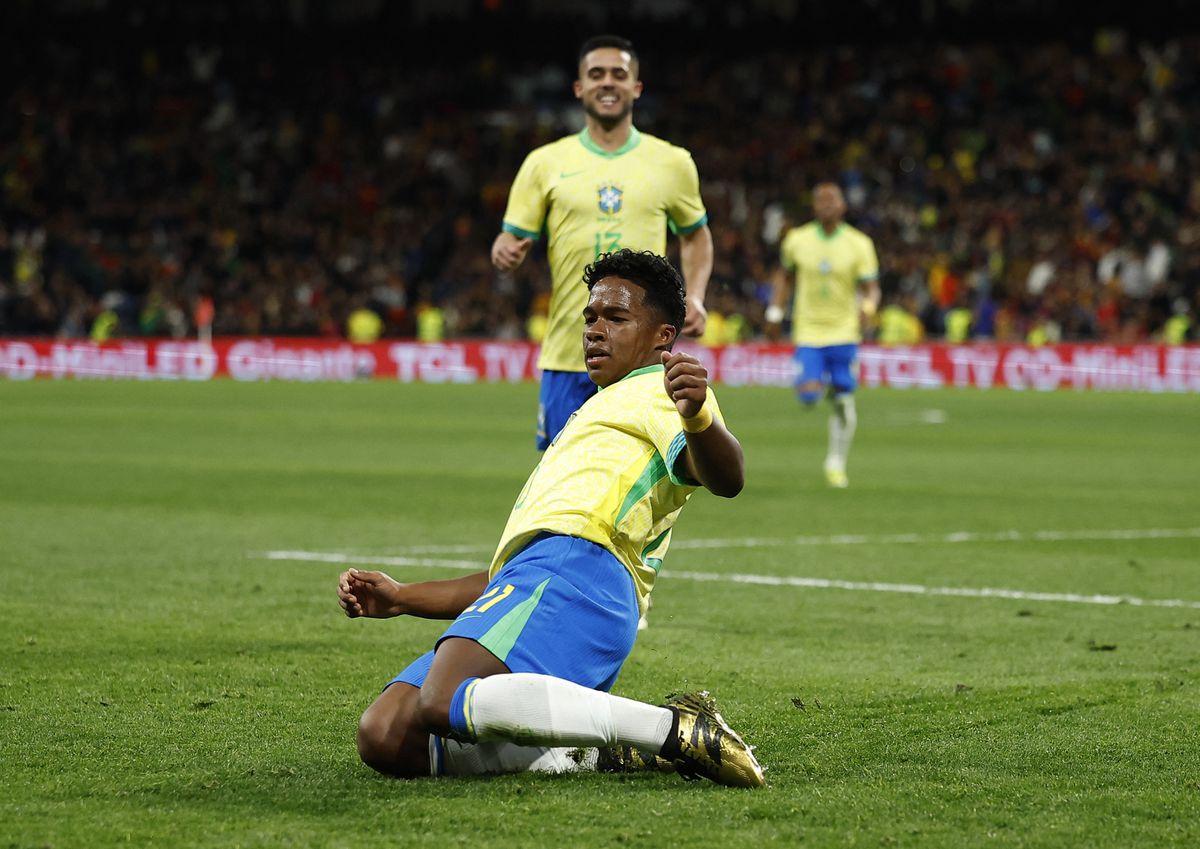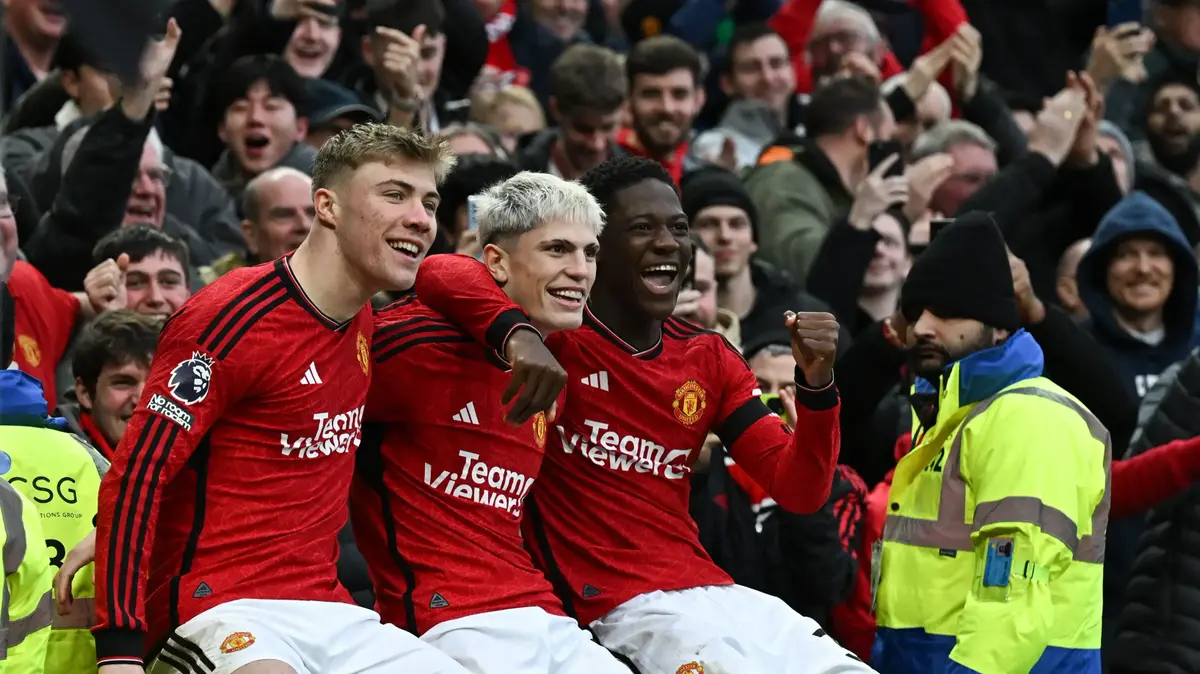On March 9, 2014, Florentino Pérez announced on the
Salvados
de La Sexta program that he already had a successor to take over ACS.
The president of the construction group confessed to the journalist Jordi Évole that he did not want to turn 70 - he was 67 at the time - with so much responsibility, and that the ideal person to take control of the company was Marcelino Fernández Verdes.
He preferred to dedicate himself to Real Madrid, a club of which he has been president for 17 years in two stages and, above all, to the ACS Foundation.
Seven years later, and just turning 74, the founder of ACS returns to the starting box and assumes all power in the construction group, after dropping his
heir,
Marcelino Fernández, who announced this Wednesday that he was leaving the position as director delegate of the firm and was also leaving the board.
He did it "of his own free will," according to the official statement, although that expression usually means just the opposite in most of the resignations of senior executives.
Also on this occasion the farewell is more like a disguised cessation.
Pérez has not been able to forgive the one who was his right hand until recently the responsibility for the heavy losses caused by investments made in the Middle East through the Australian subsidiary Cimic, of which Fernández Verdes was president.
The 45% stake through Cimic in BIC Contracting, the company through which these investments were made, left a hole of 1,000 million euros, which has forced the construction company to make a provision of 400 million. on your 2020 accounts.
The bad deals of the Australian Cimic
The storm could be seen coming when last November Fernández Verdes handed over the presidency in Cimic after eight years to Juan Santamaría.
According to the Australian press, it had tried to ease its financial problems by
factoring
(asking banks for advance money for short-term charges) and delaying the accounting for its losses in the Middle East, where Cimic would end up cutting all exposure in the region by selling 45% of its stake in the company BIC Contracting to a group from the United Arab Emirates.
With Verdes at the helm, Cimic was also very aggressive in bidding for projects, offering significant price cuts to protect its market.
Added to that, perhaps, was the bad luck of other projects, such as the Gorgon LNG Jetty and Marine Structure executed by CPB, a 100% subsidiary of Cimic, for the Chevron company in Australia.
That work took years of tug of war and was in the hands of an arbitral tribunal.
The dispute centered on the fact that ACS included within its assets contracts receivable of 694 million for the construction for Chevron of a structure for liquefied natural gas.
The arbitration ruling, known at the end of February, gave the reason to Chevron, and led the ACS subsidiary to deduct those 694 million euros from its balance, a “merely accounting” point that did not affect its cash, but that He put the historic claim to the ruin.
"If by the management of Fernández Verdes, ACS eats the benefit of one or two years, the normal thing is that it ends up setting it aside, because no matter how much it trusts him, his management will have an impact on the shareholder," an analyst slipped after the results presentation.
Sabadell, in its latest report, spoke of a global impact on ACS cash of 844 million due to the losses of Cimic's business in the Middle East.
A faithful squire
At the results press conference on February 26, Pérez took great care to stage the distance that separated him from his
dolphin
until recently
, hardly allowing him to intervene, when in previous presentations Marcelino Fernández took the leading role.
Gone were more than two decades of working side by side to create the first Spanish construction company, and dealing with negotiations as difficult (and murky) as the agreement with Atlantia to acquire Abertis.
It is known that Fernández Verdes distrusted the CEO of Atlantia, Giovanni Castelluci, today separated from the Italian group and trying to escape jail for the collapse of a bridge in Genoa that killed 43 people on August 15, 2018. But Pérez He imposed on his lieutenant to keep the negotiations until the end and he strictly complied with his orders.
In the photo of the agreement on April 2, 2018 were the three protagonists.
Two years later, only Florentino Pérez survives in his post.
All eyes now point to José María Castillo Lacabex, current CEO of Cobra and head of the sale of this industrial services subsidiary to the French Vinci for 4.9 billion euros as the successor.
But it seems difficult to venture a substitute for the omnipresent and almost always omnipotent Pérez.
He is practically the last historical businessman of the Ibex who remains at the head of the company he founded in 1997, after the abandonment of other heavyweights such as Francisco González (BBVA), César Alierta (Telefónica), Isidro Fainé (Gas Natural and La Caixa) or his colleague from the sector Juan Miguel Villar Mir (OHL).
Good tune with all governments
In addition to his business longevity, Pérez can boast of getting along with all governments, whatever their ideological color.
Not in vain, he was able to sign in 2001 with Alberto Ruiz-Gallardón, then mayor of Madrid by the PP, the requalification of lands of the Real Madrid Sports City to raise four skyscrapers, in the largest real estate operation on sports land of Europe.
Not happy with it, he also sealed in 2019 with the mayor Manuela Carmena (Podemos y Más Madrid), the urban plan for the remodeling of the Santiago Bernabéu stadium, a project that had resisted all his predecessors in the presidency of Real Madrid and that it had even been thrown back by the Superior Court of Justice of Madrid (TSJM).
Carmena broke his promise not to step on the Real Madrid box and even the current leaders of Podemos prefer to elude him in his diatribes against the employer's association and direct their attacks on other businessmen such as the maximum shareholder of Inditex, Amancio Ortega.
His good harmony with the political universe has also served him to deal with the purchase and sale of strategic companies such as Unión Fenosa, with multimillion-dollar profits in just a few years.
Or to solve thorny issues such as compensation for the Castor gas warehouse built by ACS, which has meant a disbursement for the State coffers of 1.35 billion.
Florentino Pérez renewed at the beginning of 2019 as president of ACS for a period of four years.
Then, he ventured that he would not fulfill his mandate.
Today it is closer to fulfilling it and even expanding it.
The search for a successor seems like an arduous task, given the employer's work capacity and his few tricks to delegate in decisive agreements.
Of course, the gratification for the new heir who is elected even if he does not come to occupy the throne of ACS is guaranteed.
Marcelino Fernández was the highest paid Spanish executive in 2018, after pocketing 20.46 million euros for his various positions at Hochtief, Cimic and ACS itself.
Florentino Pérez will continue to lead ACS.
And, as if that were not enough, he has just called elections for the presidency of Real Madrid, where he does not seem to have a rival either.
It may be eternal.




/cloudfront-eu-central-1.images.arcpublishing.com/prisa/HHRFXOXTGBF6ROEGFX5NOA2PYU.jpg)
/cloudfront-eu-central-1.images.arcpublishing.com/prisa/D73UHFSSQCADAHSE3IMCDJPMLM.jpg)
/cloudfront-eu-central-1.images.arcpublishing.com/prisa/JHZRZTPJTN25ITHFODQJE55T6I.jpg)


